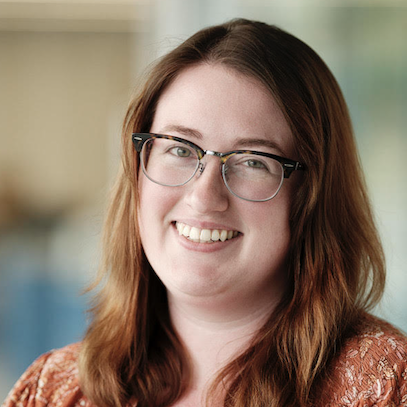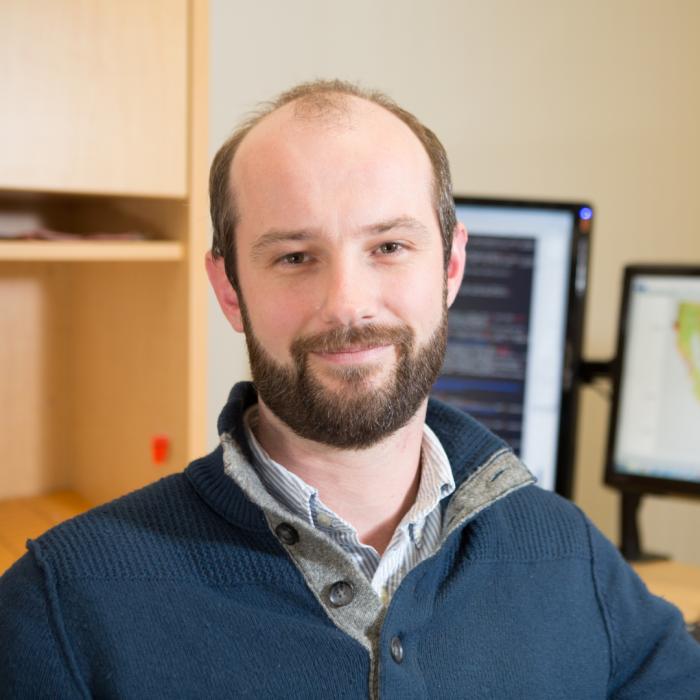Open Source Conference GW OSCON

GW's Second Annual Open Source Conference
March 23-24, 2026 • Washington, D.C.
Check out highlights from last year's inaugural OSCON!
Hosted by the GW Open Source Program Office (OSPO), this conference brings together students, faculty, and staff passionate about open-source software, with guests from Washington DC, and beyond. Whether you’re an experienced contributor or just beginning, this event offers a platform to learn, share, and connect with others in the open-source community.
Conference Highlights
The GW OSCON features:
Presentations from key members of GW's open source community.
Lightning talks from students and researchers contributing to open source.
Panel discussions with policy makers and federal agency representatives.
Keynote Speakers
We are inspired by these leaders of the open source community, who will anchor the themes of the OSCON with their keynotes:

Mariatta Wijaya
Python Core Developer with a primary focus on improving core Python workflow, documentation, and community accessibility. She is advisor and administrator for Global PyLadies, an international mentorship group helping those who identify as women become active participants and leaders in the Python community, and kickstarted the PyCascades and PyLadiesCon conferences.
See our story: Mariatta Wijaya: Open-Source, Code, and Community

Dr. Frank Nagle
Research Scientist at the Initiative on the Digital Economy at the Massachusetts Institute of Technology (MIT) and Chief Economist at The Linux Foundation. Dr. Nagle's research has illuminated the real economic impact of open source software on organizations, industries, and broader society.
See our story: Frank Nagle: The Economic Value of Open Source

Dr. Brian Granger
Dr. Granger is the co-creator of Project Jupyter and the Jupyter notebook, and currently serves as the Senior Principal Technologist at Amazon Web Services. He was previously a Professor of Physics at Cal Poly State University in San Luis Obispo, CA. In 2017, he received the Association for Computing Machinery Software Systems Awards, along the rest of the Jupyter team.
See our story: Brian Granger: Project Jupyter and Beyond
Featured talks

Meredith Roach
Jovians: The Foundation of Project Jupyter

Michael Mann
Associate Professor of Geography, George Washington University
OSCON 2026 Program
Location: University Student Center, 3rd Floor
Continental Ballroom: Welcome, Keynotes, Panels, Lightning talks.
Grand Ballroom: Coffee breaks, breakfast, lunch, snacks, tabling. See each regular session for room numbers.
| Time | Event | ||||||||||||||||||||||||||||||||||||
|---|---|---|---|---|---|---|---|---|---|---|---|---|---|---|---|---|---|---|---|---|---|---|---|---|---|---|---|---|---|---|---|---|---|---|---|---|---|
| 9-9:30am | Registration & Coffee | ||||||||||||||||||||||||||||||||||||
| 9:30–9:50am | Welcome & Provost Remarks | ||||||||||||||||||||||||||||||||||||
| 9:50–11am | Keynote Speaker - Dr. Frank Nagle Featured Speakers | ||||||||||||||||||||||||||||||||||||
| 11–11:30am | Coffee Break | ||||||||||||||||||||||||||||||||||||
| 11:30am–12:30pm |
| ||||||||||||||||||||||||||||||||||||
| 12:30–1:30pm | Lunch | ||||||||||||||||||||||||||||||||||||
| 1:30–2:30pm |
| ||||||||||||||||||||||||||||||||||||
| 2:30–2:45pm | Coffee & Snack Break | ||||||||||||||||||||||||||||||||||||
| 2:45–3:45pm |
| ||||||||||||||||||||||||||||||||||||
| 3:45–4pm | Short Break | ||||||||||||||||||||||||||||||||||||
| 4–5pm | Lightning talks - 5 min each | ||||||||||||||||||||||||||||||||||||
| 5:30–7pm | Happy hour for presenters, sponsors, and organizers |
| Time | Event | ||||||||||||||||||||||||||||||||||||
|---|---|---|---|---|---|---|---|---|---|---|---|---|---|---|---|---|---|---|---|---|---|---|---|---|---|---|---|---|---|---|---|---|---|---|---|---|---|
| 9–9:30am | Registration & Coffee | ||||||||||||||||||||||||||||||||||||
| 9:30–9:40am | Welcome | ||||||||||||||||||||||||||||||||||||
| 9:40–10:30am | Keynote Speaker - Dr. Brian Granger Featured Speaker | ||||||||||||||||||||||||||||||||||||
| 10:30–11am | Coffee Break | ||||||||||||||||||||||||||||||||||||
| 11am–12:00pm |
| ||||||||||||||||||||||||||||||||||||
| 12:00–1:00pm | Lunch | ||||||||||||||||||||||||||||||||||||
| 1:00–2pm |
| ||||||||||||||||||||||||||||||||||||
| 2–2:15pm | Coffee & Snack Break | ||||||||||||||||||||||||||||||||||||
| 2:15–3:15pm | Lightning Talks - 5 minute presentation | ||||||||||||||||||||||||||||||||||||
| 3:15–3:30pm | Coffee & Snack Break | ||||||||||||||||||||||||||||||||||||
| 3:30–4:30pm | Featured Announcement Featured Speaker Closing Keynote - Mariatta Wijaya | ||||||||||||||||||||||||||||||||||||
| 4:30–4:45pm | Closing Remarks |
2026 Conference organizers
General Chair
| Lorena A. Barba — Professor of Mechanical and Aerospace Engineering and OSPO Faculty Director |
Planning Committee
| David Lippert — OSPO Director |
| Rosemary Pauley — OSPO Program Coordinator |
| Robin Delaloye — Associate Dean for Scholarly Technology and Student Success |
| Mike Sanders — Senior Research Associate, GW Institute of Public Policy (GWIPP) |
| Sunil Shah — Technical Projects Graduate OSPO Student Ambassador |
| Nouha Elyazidi — Marketing & Communications Graduate OSPO Student Ambassador |
| Jood Alfadhel — Technical Projects Undergraduate OSPO Student Ambassador |
| Mia Diewald — Marketing & Communications Undergraduate OSPO Student Ambassador |
Program Committee
| Lorena A. Barba — Professor of Mechanical and Aerospace Engineering and OSPO Faculty Director |
| David Lippert — OSPO Director |
| Clark Gaylord — Director, GW Research Technology Services |
| Mike Pinkerton— Senior Staff Software Engineer, Google |
| Naty Clementi — Senior Software Engineer, NVIDIA, GW alumna-SEAS |
The Sponsors of GW's First Annual Open Source Conference
GW believes in the power of open source to drive innovation and education. As the only R1 research institution with an engineering school in the nation’s capital, we are uniquely positioned to foster meaningful connections between academia, industry, and government.
Our sponsors are our generous partners in this inaugural celebration of open source communities in Washington DC!
Silver Sponsors $5,000

Supporting structural change for simple, effective government services.

Work with trusted Partners to find the right solutions.
Registration for our conference is free, but your donation directly helps to support our student employees, programming efforts (like OSCON), and our ability to continue our work at GW. Your gift, no matter the size, ensures that open-source has a place at GW. We hope you will consider donating alongside your attendance at OSCON!
Suggested Donations:
$10 - sponsors coffee and tea at OSCON
$25 - provides one meal for a student at OSCON
$50 - covers expenses for one OSPO workshop
$150 - sponsors an open-source contributor award for GW students
$500 - covers one month’s worth of compensation for a student employee
$1,000 - secures travel for a keynote speaker at OSCON 2027
Justice Equity Diversity Inclusion (JEDI)
The GW OSCON is proud to have received a gold badge from the CHAOSS DEI Badging for Events. 
All GW OSCON participants are expected to follow our Code of Conduct.
Getting Here
The GW Campus in Foggy Bottom is conveniently located in the heart of Washington, D.C., close to three major airports: Ronald Reagan Washington National, Washington Dulles International and Baltimore Washington International, as well as to Union Station where you can take the bus or train.
Public transportation is at your doorstep with the Foggy Bottom/GWU Metro stop on the Orange, Blue and Silver lines located right on campus.


GW's Open Source Program Office is generously supported by the Alfred P. Sloan Foundation.
Please use the GW Public Health and Safety site for emergency contacts, campus advisories, alerts, policy information, weather updates, and more.



